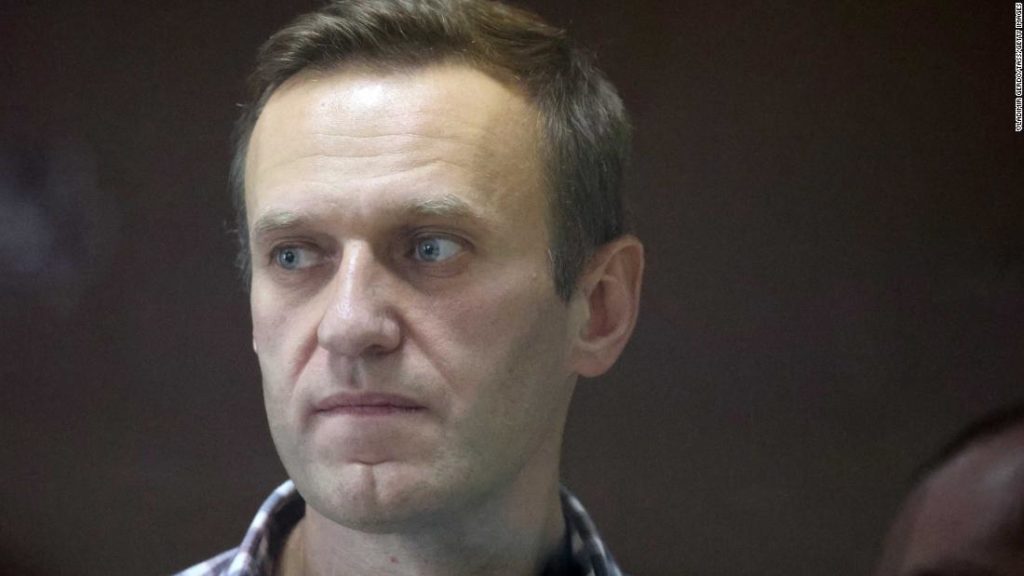In an Instagram message announcing his decision on Friday, Navalny cited two checks by civilian doctors as proof that lobbying from his supporters helped him secure independent medical examination.
A day earlier, five doctors — who are Navalny’s allies and refer to themselves as his attending physicians — called on him in a letter to end his hunger strike to avoid death.
In Friday’s Instagram post Navalny said that he had taken note of their advice: “Doctors, whom I fully trust, published a statement yesterday stating that you and I had achieved enough for me to end the hunger strike. And I will say frankly — their words that the tests show that ‘in a minimum time there will be no one to treat…’ seem to me worthy of attention.”
The announcement comes days after the Russian opposition leader was transferred to a prison hospital due to his deteriorating health.
The Kremlin critic added that while he is ending his hunger strike, he still demands to see a specialist physician because he is “losing sensitivity” in parts of his arm and legs and wants to understand “what it is and how to treat it.” CNN is unable to independently verify the state of Navalny’s health.
In an Instagram post shared by his team on Tuesday, he joked about his current condition, saying he looked like “a walking skeleton” who could be used to scare children who refused to eat.
“If you were to see me now, you would have a laugh. A walking skeleton, staggering around the cell,” Navalny said.
Russia’s Federal Penitentiary Service (FSIN) said in a statement Monday that Navalny was in “satisfactory” condition at the prison hospital, and is being examined by a doctor every day. With Navalny’s consent, he has been prescribed “vitamin therapy,” FSIN added.
Commenting on doctors’ concerns about his potassium levels, Navalny said Tuesday on Instagram: “You can’t just take me so easily. After ‘Novichok’ even potassium is not so terrible.”
Navalny blames the Russian security services for his poisoning last year with the nerve agent Novichok. The US and EU largely agree and have sanctioned Russian officials for their involvement. Russia denies any involvement in the poisoning.
Navalny was sent to prison after a Moscow court on February 2 replaced his suspended sentence with jail time due to violations of his probation. He was arrested when he returned to Moscow from Germany, where he had been recovering from the poisoning.
In an interview with CNN’s Christiane Amanpour on Tuesday, Leonid Volkov, Navalny’s chief of staff, said the Russian authorities did not want the Kremlin critic to “die in custody, but they want him to suffer.”
Detentions
On Wednesday, Russian security forces rounded up almost 2,000 demonstrators across the country, according to OVD-Info, an independent monitoring group. They were demanding that the Kremlin critic be released and allowed to receive independent medical care.
Two close Navalny allies, his press secretary Kira Yarmysh and activist Lyubov Sobol, were also detained Wednesday morning in Moscow, according to their lawyers.
The unauthorized marches fell short of the 500,000 protesters that Navalny’s team had aimed to draw, but big crowds in Moscow, St. Petersburg and other cities have shown the dedication of his supporters.
Anna Chernova and Laura Smith-Spark contributed to this report.
You may also like
-
Afghanistan: Civilian casualties hit record high amid US withdrawal, UN says
-
How Taiwan is trying to defend against a cyber ‘World War III’
-
Pandemic travel news this week: Quarantine escapes and airplane disguises
-
Why would anyone trust Brexit Britain again?
-
Black fungus: A second crisis is killing survivors of India’s worst Covid wave

